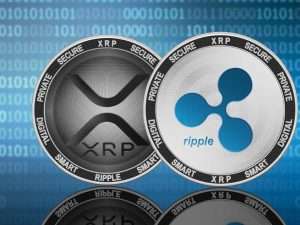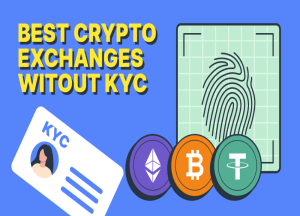Blockchain Technology in Voting
In this article, we’ll analyzes the benefits and drawbacks of blockchain voting and how a blockchain-based voting system works.
Voting is considered a civic duty for people living in a democratic society, and it is often referred to as the cornerstone of democracy. The citizens of ancient Greece were the first to elect their leaders by voting. But unlike us, who use paper ballots, each citizen would place a pebble in an urn representing the person they thought should lead.
And in 139 BC, the Romans introduced paper ballots for voting that were similar to the ones we use today. Surprisingly, the way we vote has not really changed that much since the height of the Roman empire. Sure, a few countries use electronic voting machines, but the vast majority of elections still rely on paper ballots.
Even the internet, the technological tour de force of our time, has not led to a meaningful change in the way we vote. Because regardless of how strong the security is, any election held over the internet will become a prime target for hacking groups and hostile governments.
And given that state departments and corporations are regularly hacked, and Russia was proved to have meddled in the US elections in 2016, could we ever really trust that an online election was fair? Sadly, most people think we couldn’t.
However, since Bitcoin appeared in 2009, blockchain has been touted as the technology we have been waiting for to modernize our elections. In fact, it’s already being trialed!
In this article, we will jump on the benefits and drawbacks of blockchain voting and explain how a blockchain-based voting system works. But first, let’s quickly recall what blockchains are and how they work for our benefit.
How Blockchains Work
Blockchains are a new type of shared database. It is shared across several computers that are linked together via a peer-to-peer network. So while a regular database is stored in one location, or centralized, blockchains are stored in many locations spread out all over the world, which makes them decentralized.
The benefit of decentralization is that no person or group decides what is and is not included on the blockchain. All the members need to reach a consensus before anything is added. Any information stored on a blockchain is immutable, meaning it can’t be changed by anybody, at any time, ever.
Blockchains’ immutable quality allows any two parties to interact without needing an intermediary to ensure they both play by the rules. In this case, they both know that neither one can alter or rewrite any past data on the chain.
Blockchains can be either public, where anyone can add blocks to the chain, or private, where only authorized users can add data to the chain.
So now that you’re caught up on what blockchains are, let’s explore how a blockchain-based voting system could work in the real world.
How Does a Blockchain-Based Voting System Work?
So far there has not been a national election run entirely using a blockchain voting system, so we can only guess how it might work. Let’s imagine we are transported eighteen years into the future, to the presidential elections in the year 2040.
The government has developed a blockchain-based voting system that allows all citizens to vote in any election, from local council votes all the way up to national ones, from an app that works on all smartphones. Your phone buzzes with an alert reminding you to vote in today’s presidential elections, so you log in to the app and request a digital ballot.
The app then asks you for some identification to verify you are eligible to vote, like a driver’s license or a passport, as well as a short video of yourself saying a random sequence of words to prove that you are who you say you are.
Someone on the other end then checks your ID and video and certifies that you are exactly the same person you claim to be. Now that your identity is confirmed, your digital ballot arrives, so you can simply pick whichever candidate you want to vote for, and your vote is then written to the blockchain.
Later you receive a receipt for your vote straight to your phone, which allows you to check that your decision was registered correctly onto the blockchain. Once everyone’s voted, the final count is available straight away, and the digital ballots can be audited simultaneously by all the relevant agencies and regulators.
Obviously, this is a really simplified and purely hypothetical example, but it should give you an idea of what a blockchain-voting system might look like. In theory, a blockchain-based voting system could work in exactly the same way for referendums, opinion polls, and national elections.
Why Blockchain Voting Might Be a Good Idea?
1.Faster and Easier Voting – From Anywhere
Blockchain voting would be faster and easier than voting in person. And the easier it is for people to vote, the more they will!
Also, voting through a blockchain-based system would not require you to vote from anywhere specific, like a poll booth, nor would you need to go through the trouble of filling out and sending a postal vote.
Obviously, having the option to vote from anywhere is an enormous help to people who struggle to get to polling centers, like those who work long or unsociable hours, or who have physical disabilities.
Additionally, voting through an app is considerably simpler and faster than filling out postal votes for local, regional, and national elections, so blockchain voting systems would be beneficial to military personnel living overseas as well.
As we just mentioned in our hypothetical blockchain election, counting votes stored on a blockchain would take considerably less time than counting paper ballots. In fact, live and auditable vote count would be available on election night, which would save us from a week of impatiently watching the news to find out who won.
2.Eliminate Voter Fraud Myths
Election results are commonly dragged into disrepute by the losing party, the most recent and obvious example being the US Presidential election of 2020. The losing side claims that ballot boxes were stuffed with fraudulent votes for the other guy, or that the votes for their candidate were destroyed by devious members of their opposition.
But statistically, voter fraud is essentially a non-issue – at least in Europe. and North America. A study by MIT found that instances of voter fraud are at 0.00006% nationally, meaning they occur about five times less frequently than someone being struck by lightning.
Yet in spite of the complete lack of evidence for any widespread voter fraud, people still do not trust paper ballots. One of the more common reasons for the lack of trust is that you cannot check that your vote actually counted because you put your ballot in a box or in the mail and you just hope that someone else makes sure that it gets to where it’s supposed to go. And if it doesn’t, you’ll never know!
But votes stored on a blockchain, on the other hand, are checkable. In fact, you can view the time and date of your vote almost as soon as you have voted.
Blockchain votes could also be auditable, so impartial organizations and regulators could check the legitimacy of any election without needing to count each vote alongside the official vote counters.
3.More Public Consultations
Blockchain voting systems could allow governments to quickly and easily gauge how the population feels about any issue: from local problems like filling in potholes, to national questions about defense spending. In other words, blockchain could radically reform the way in which governments consult with their citizens, and ensure every citizen’s voice is heard.
Needless to say, this would be a huge improvement on the polling systems we have in place today, which are complicated, expensive, imprecise, or a mix of all three.
Opinion polls are consistently relied upon to measure public sentiment, but they are now, and probably always will be, notoriously imprecise because they use the opinions of a few thousand people to represent the voices of millions more.
A referendum, on the other hand, near-perfectly records how the population feels about one problem or another. But they are incredibly expensive and time-consuming to carry out. The UK’s Brexit referendum, for instance, cost nearly £130 million to carry out.
But like we said earlier, a blockchain-based voting system could allow for monthly or even weekly opinion polls or referenda on all of the major and local issues. In time, it would also help more people engage with politics, and feel as if their opinion matters, which would probably lead to higher voter turnouts and a stronger democracy.
4.Reduce the Costs of Election
As we mentioned earlier, running elections is incredibly expensive, especially when it comes to national votings and referendums. A general election in Europe., for example, costs £150 million, which is around $190 million up to date.
And while building and maintaining a blockchain voting system wouldn’t be cheap either, in the long-term, it would deliver significant cost savings, not to mention all the trees saved by reducing the number of paper ballots.
Going back to the UK for a second, if the British government decided to implement a blockchain-based voting system and it cost, say, $350 million to build, they would make their money back in two election cycles. And that’s without accounting for any local election costs, opinion polls, or referendums.
Disadvantages of Blockchain Voting
Of course, blockchain voting systems are not flawless, and the systems being built and trialed today have received their fair share of criticism. A lot of these complainers are concerned about voter privacy; specifically, they are worried that a register showing how every citizen voted in a recent election could somehow be leaked or stolen.
Even though this is unlikely, it is still possible, because while blockchain technology is considerably more secure than most centralized databases, it is far from perfect.
Unfortunately, security will be the number one concern of any government considering using a blockchain voting system for their national elections. So until blockchains become hacker-proof, we probably won’t be voting in a blockchain election.
Other people are concerned about how voters will prove their identity in order to vote on the blockchain. Because while most people have some kind of ID, it’s worth remembering that not everyone has a spare $50 for a driver’s license.
Studies show that implementing regulations that require voters to show ID before they can vote disproportionately affects minorities as well. Unless every eligible person has an acceptable form of ID to vote, using blockchain to host a digital election could exclude poorer voters, which is obviously not acceptable.
One last problem is that for any country to use a blockchain voting system for its elections, at least 95% of its citizens would need to have smartphones and access to the internet. Otherwise, like with voter ID, you run the risk of excluding poorer members of society.
So now that we have looked at the other side of the coin, it seems fair to say that while blockchain voting offers numerous advantages, the technology – especially the security – probably is not quite where it needs to be just yet. However, it surely can be upgraded in time.
Blockchains Voting Outlook
As you can see, blockchain voting systems aren’t just a nice idea for the future. They exist, they work, and there are good reasons to use them for national elections. However, trust in this technology is not high enough to use it anytime soon.
As the researchers from MIT pointed out, blockchain security is not yet ready for use in national elections. However, that does not mean we cannot use blockchains to certify elections while the technology develops and improves. And, as they become faster and more secure over time, there is a good reason to believe that blockchains could finally bring voting out of the dark ages.










